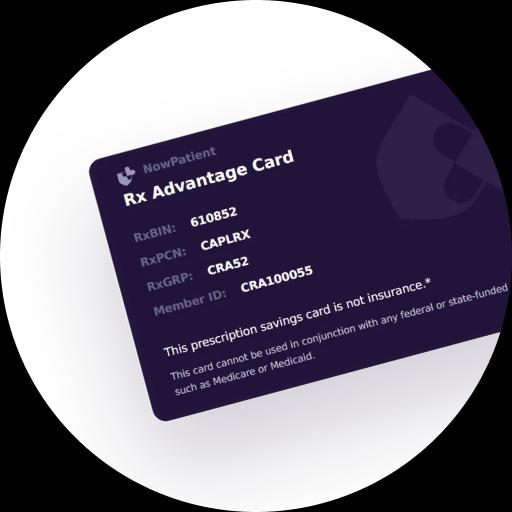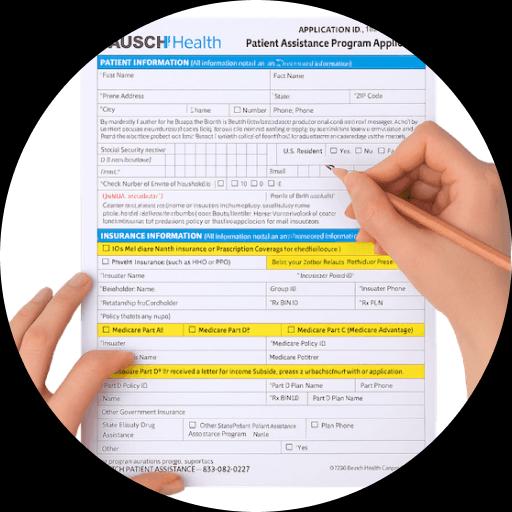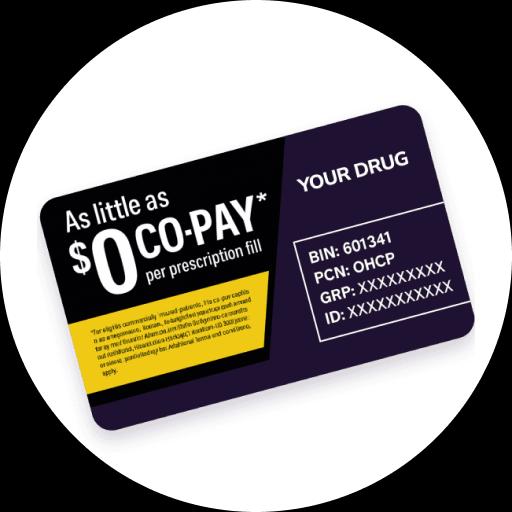Save on Ibuprofen with Coupons, Discounts & Savings Programs


Start Saving Today!
Lower the Cost of Your Ibuprofen Prescription
More great savings
View Related Brands
MEDICAL INFORMATION
Ibuprofen Key Facts
What dosages is Ibuprofen available in?
Ibuprofen is available as a 100 mg, 200mg , 400 mg (Rx), 600 mg (Rx), and 800 mg (Rx) tablet; 200 mg capsule; 50 mg and 100 mg chewable tablet; 100 mg/5 ml and 40 mg/ml oral suspension,
What is Ibuprofen used for?
Ibuprofen is a nonsteroidal anti-inflammatory drug (NSAID) that is used to treat minor aches and pains due to headache, muscle aches, arthritis, toothache, backache, the common cold, or menstrual cramps.
How does Ibuprofen work?
Ibuprofen is a nonsteroidal anti-inflammatory drug, or better known as an NSAID. It works by blocking proteins in your body called cyclooxygenase (COX) that cause inflammation, swelling, and pain. By blocking these proteins, Ibuprofen helps relieve inflammation, swelling, and pain.
How do I take Ibuprofen?
Ibuprofen is typically taken by mouth 3 to 4 times a day. The maximum dose is 3,200 mg within a 24-hour period.
Is it safe for me to take Ibuprofen?
Ibuprofen is a safe and effective treatment when used for FDA licensed indications. However, like all medications, they may give you unwanted side effects. You should always discuss potential side effects with your physician to ensure the medication is suitable and right for you. You should not use Ibuprofen if you have a hypersensitivity to the drug, other NSAIDs, aspirin, or excipients. It should also not be used for perioperative pain if you’re having coronary artery bypass graft (CABG) surgery.
Ibuprofen Common Side Effects
Common side effects of Ibuprofen include:
- Nausea
- Stomach pain
- Heartburn
- Dizziness
- Rash
Ibuprofen Serious Side Effects
Serious side effects are rare with Ibuprofen. Contact your healthcare provider immediately if you experience any of the following:
- Stomach bleeding: vomiting blood, bloody or dark stools, severe stomach pain or discomfort
- Heart attack: chest pain or tightness; pain that radiates up to your shoulder, arm, neck, or jaw
- Heart failure: trouble breathing, swelling, sudden weight gain, fast heartbeat
- Stroke: chest pain, trouble breathing, weakness in one part of your body or face, slurred speech
- Kidney problems: tiredness, dry and itchy skin, low appetite, urinating less than usual, foamy or bloody urine, muscle cramps
- Liver problems: swelling of your stomach, yellowing of your skin or the whites of your eyes, dark or brown urine
- Allergic reaction or skin reaction: hives, rash, skin reddening, blisters, peeling skin, swelling of the lips or tongue, difficulty breathing
Effects of other drugs, drug classes and over-the-counter products on Ibuprofen
The following medications may interact with Ibuprofen:
- Other NSAIDs
- Blood thinners
- Other medications that affect blood clotting
Who makes Ibuprofen?
Various FDA-approved generic manufacturers
Is Ibuprofen safe in pregnancy?
It’s not completely clear whether Ibuprofen is safe to take during the first 20 weeks of pregnancy. But you should avoid Ibuprofen after 20 weeks of pregnancy because it might cause developmental problems in your unborn baby or complications during delivery.
What is the brand name for Ibuprofen?
Medical Disclaimer
NowPatient has taken all reasonable steps to ensure that all material is factually accurate, complete, and current. However, the knowledge and experience of a qualified healthcare professional should always be sought after instead of using the information on this page. Before taking any drug, you should always speak to your doctor or another qualified healthcare provider.
The information provided here about medications is subject to change and is not meant to include all uses, precautions, warnings, directions, drug interactions, allergic reactions, or negative effects. The absence of warnings or other information for a particular medication does not imply that the medication or medication combination is appropriate for all patients or for all possible purposes.
OUR CUSTOMERS VIEW
What Customers Love About Our Service
We want everyone to be happy and healthy, that’s what keeps us going. Read what some of them have to say about us.
Medicines Experts
Meet Our Medical Team
We are a broad skilled and passionate group of clinicians with experience of operating in health systems in the United Kingdom & United States. Providing excellent care and advice is at the heart of everything we do. You can read more about our medical team by visiting the medical team page or learn more about how we curate content by visiting our editorial process

























